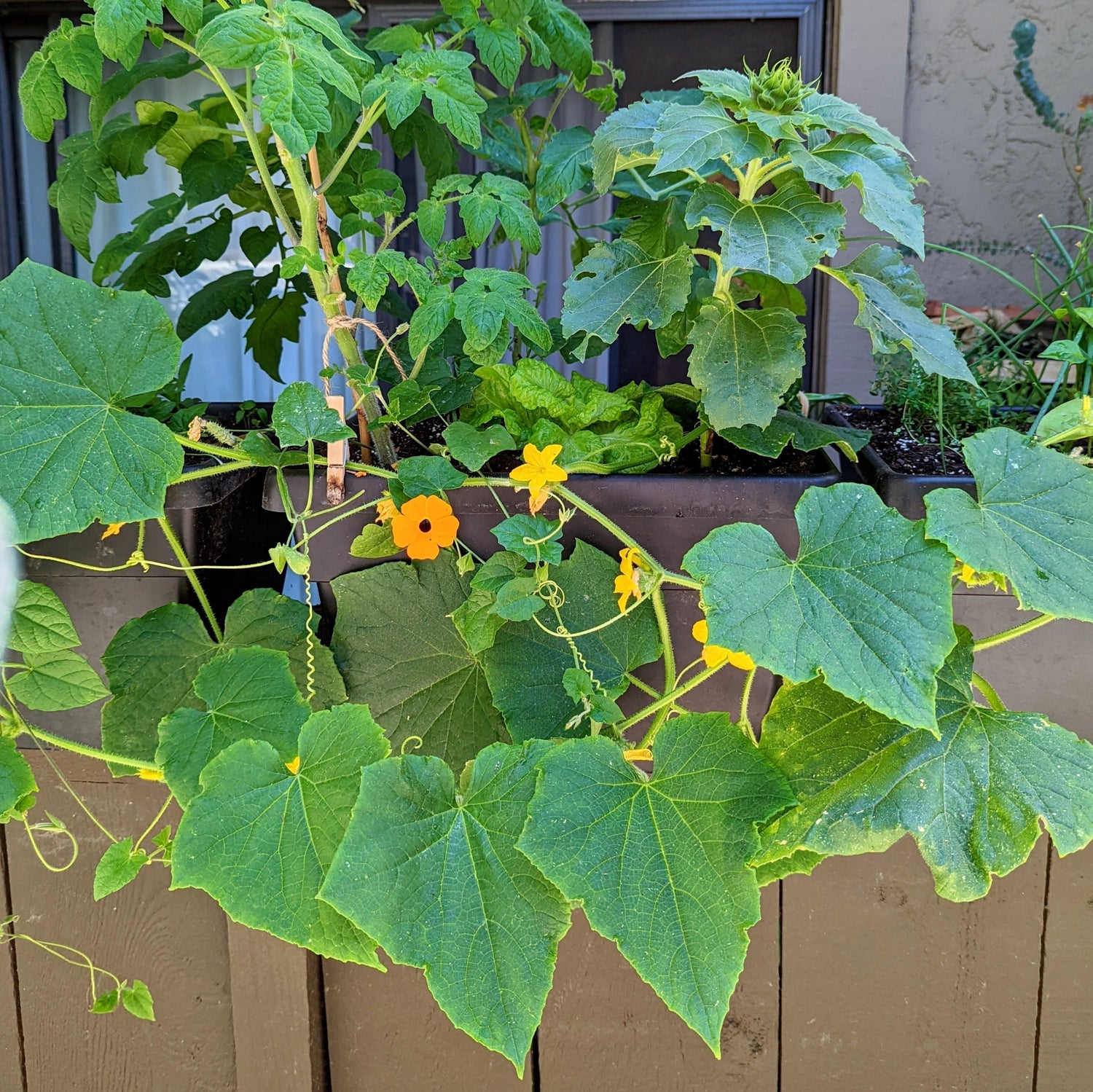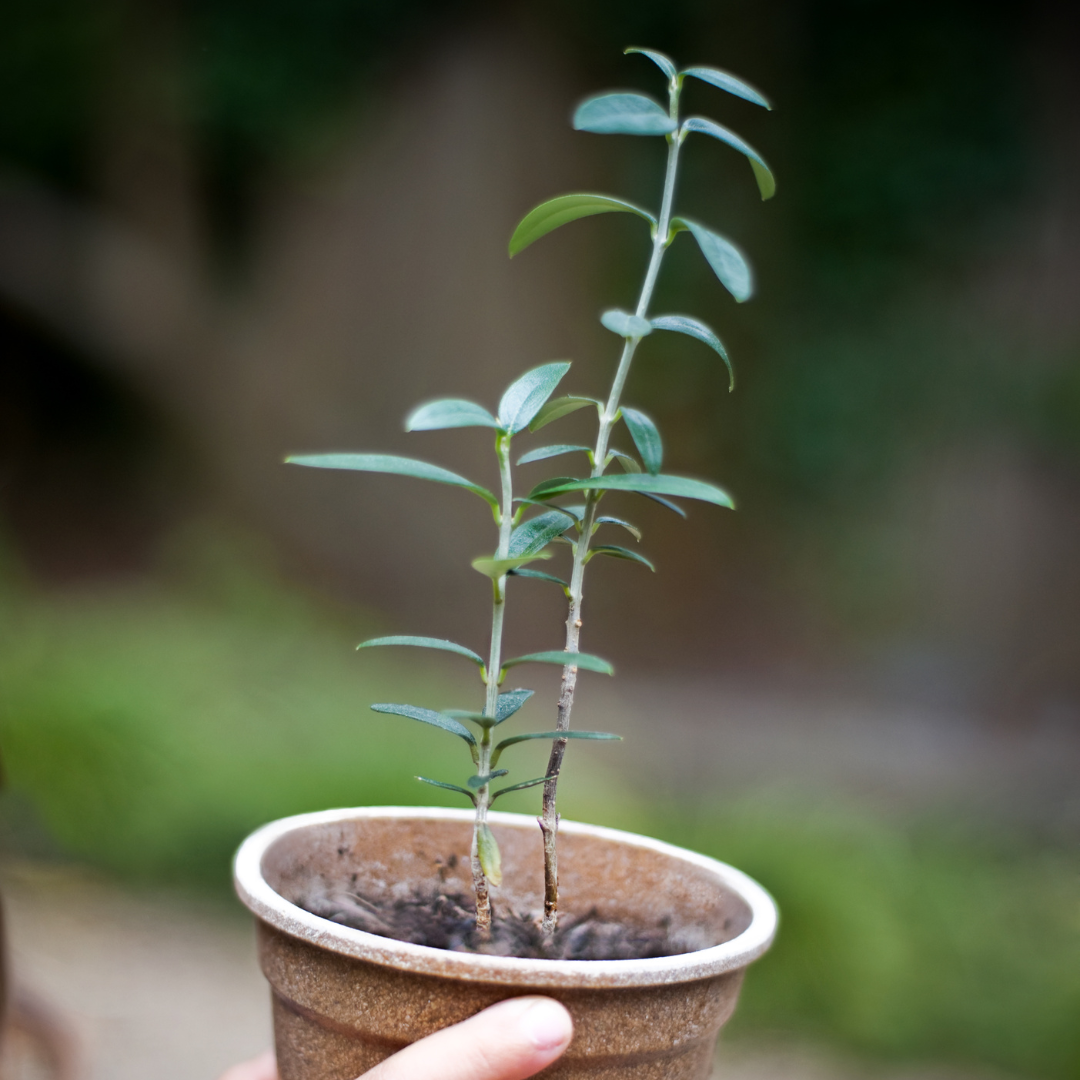I get questions pretty regularly about what seeds are good to get depending on a person’s situation and experience, so here’s a post breaking down the categories currently available in our shop and how to navigate them based on difficulty and other factors :)
Before we do that, I’d like to clarify that growing various exotic plants from seed can be pretty difficult. Going into it with the desire of getting a big lush jungle in a couple of months is generally not a good way of approaching growing from seed. It can be a letdown- after all different plant varieties have different requirements and growth rates.

Instead, look at it as a hobby of its own! If you can take the time to appreciate all the growth stages and just enjoy the process, then you’ll have lots of fun growing from seed :) You can experiment with various germination methods and seed starting setups(here are some good starting points), and see what works, and eventually you will find yourself with lots of beautiful plants that you raised yourself!
That being said, when you’re choosing the right seeds for you, going for the flashiest seeds may not be the best way to begin, since the rarest seeds often are the most difficult to germinate. Definitely do your research before purchasing any seeds, I have care instructions on the product pages for the seeds, and hopefully this post serves as a good guide for what kinds of seeds to start off with based on your experience level and conditions you can provide :) Let’s jump in!
If you’re a beginner, meaning you’ve never started any plants from seed, ignore the following categories for now:
-
Palm/Cycad
-
Carnivorous Plants
-
Certain Houseplant Seed varieties
-
Succulents
In general, setup methods are pretty straightforward, however the things like attaining the right moisture levels in soil, working with the seeds themselves, and just maintaining the setup requires a little practice to get right. So, try out some other easier(and cheaper) seeds first! That includes:
-
A couple of Houseplant Seeds, namely ones in the ‘Houseplant Newbie’ Collection
Once you successfully get those going and feel confident in the seedlings you have, then you can move into some slightly more difficult categories.
The more intermediate-level seeds can take a little neglect regarding their setup, and in that way are a little more cost-effective and easy to germinate because you can use a variety of germination methods.
Some intermediate-level seeds include:

Most carnivorous plants are difficult to germinate, but Venus Fly Trap Seeds are decently easy to get going!
-
Most houseplant varieties(Chlorophytum Amaniense, Radermachera Sinica, Fatsia Japonica, Monstera Deliciosa)
-
Some Succulents(Ponytail Palm, Desert Rose, Lithops)
-
Venus Fly Trap from the Carnivorous category
Finally, the more advanced varieties really do need the full setup with grow lights, a heat mat and mini greenhouses. It’s important to monitor the conditions the seeds are in, because if they fluctuate too much temperature-wise or humidity-wise, they may be gone. Furthermore, a lot of these varieties include extra steps, as in the case of some houseplants and the palms/cycads, pre-soaking, and in the case of carnivorous plants, refrigeration to mimic dormancy.
The advanced seed varieties include:
-
Some houseplant varieties(Philodendron Selloum, Schefflera Arboricola)
-
Some succulents(Fenestraria Aurantiaca, Spoon Jade)
-
Carnivorous Plants
-
African Violet Seeds(Indoors Blooms)
The next thing to consider is, what kind of care requirements the plants of the seeds have. It’s one thing to germinate the seeds, but caring for the seedlings and bringing them to plant adult-hood requires certain conditions in your home, namely light conditions. If you’ve narrowed down the categories that you feel you can tackle, consider the lighting that you have and what the plants need.
Seedlings need a good amount of light to get the energy they need to grow and develop those first leaves. While the babies are still young, you really need to give them good light, ideally in the form of grow lights so you can control the brightness and the length of time they’re under light. So keep that in mind in this list, because the list is more intended for the adult plant requirements as opposed to the seedlings:
Bright Light(Outdoors or South-facing windows):

The varieties that I have available in the shop are specifically meant for indoor gardening, so keep in mind that most of these plants won’t tolerate too much bright direct sunlight, but some wouldn’t hurt and would probably help these varieties:
-
Veggies(these really need the light!)
-
Some carnivorous varieties(Venus Fly Trap)
-
Indoor Blooms(the more light, the more energy to flower)
-
Some houseplants(Asparagus ferns)
Intermediate light(west, east-facing windows, shade, or just a place further from a south-facing window):
Low Light(North-facing window):

Zamia Furfuracea Seedlings germinated in a mini greenhouse on a heat mat and under grow lights.
Important note about this category, low light can mean away from any windows, but you won’t see much seedling growth in a situation like that. If you don’t have many windows or room by windows, then consider investing in some grow lights so your seedlings can get the light they need to grow!
That is a general breakdown of light requirements, which is the main factor when it comes to deciding what type of seeds to get after the difficulty level.
One final thing to consider is temperature, and whether you can grow them indoors or outdoors. These varieties can be grown outdoors, namely the first category, and the others can as well but it really depends on your zone and what season it is. Some houseplants like Philodendron Selloum or Fatsia Japonica, or palms like the Livistona Chinensis can tolerate some cold temperatures and can be grown outdoors year-round in warmer climates, but in general you can take these plants outside and bring them indoors for the winter.
Plants that can be grown outdoors:
-
Some houseplants
-
Some succulents
-
Some carnivores
-
Some indoor blooms
Hope this breakdown helps! If you have any further questions about these requirements, let me know. Doing your research on varieties that seem interesting to you and seeing if they match the care you can give is important! Make sure to look into the care requirements for both the seeds and the plants and know you can provide them before you click that purchase button :)
Good luck!
If you found this post informative and want more good plant info, here are some other helpful posts :)






1 comment
Looking forward to adding to houseplants! ♥️😍 and learning from seeds!